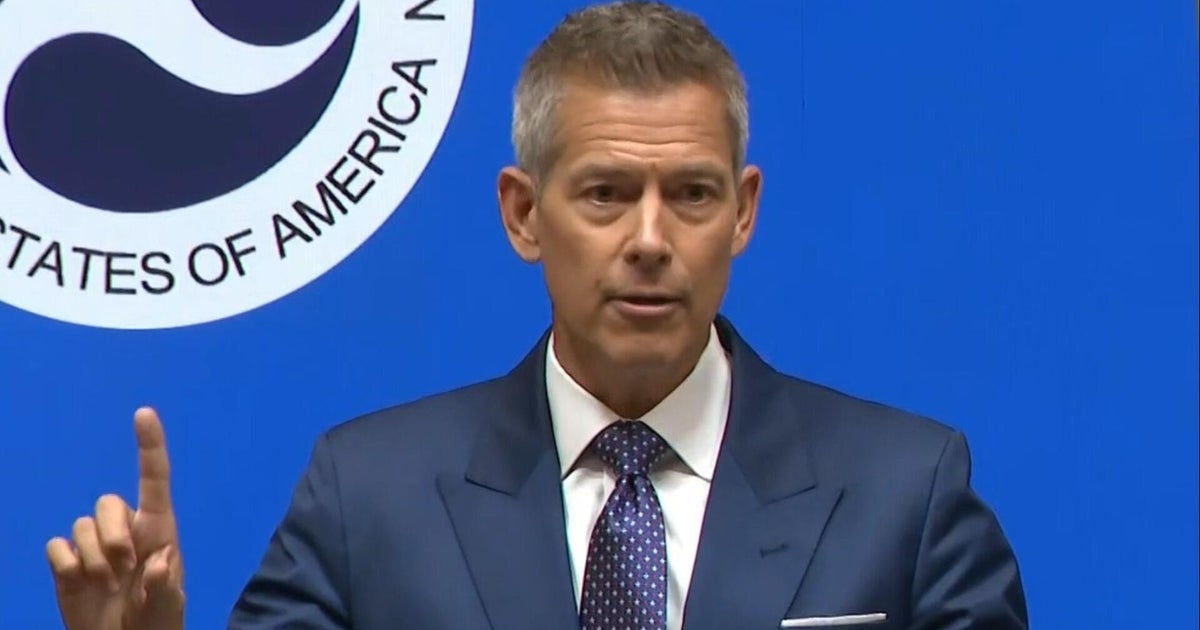By Ella Nunn
November 6, 2025 — 11.12am
For many, persistent exhaustion is an inescapable part of modern life that we’re forced to cope with. In fact, the feeling of constant tiredness is now so common that doctors have named it: TATT (or “tired-all-the-time syndrome”).
Yet while tiredness is a wearily accepted part of life for some – often a result of inadequate sleep or excess stress – in other cases it can be a symptom of infection, disease or more serious illnesses. There are countless conditions that list fatigue as a key symptom, including anaemia, diabetes, thyroid disorders, depression, cancer, and heart disease.

We all experience tiredness but it may be a sign of a more serious issue.Credit: Istock
How can we tell if our tiredness is “normal” or something more serious? Dr Nisa Aslam, a GP, explains how to combat fatigue and when to seek help.
What is ‘normal’ tiredness?
We accept tiredness as a part of modern life, with three-quarters of us getting less than eight hours of sleep each night and the same proportion feeling so stressed that they couldn’t cope.
“When we look at lifestyle causes, people struggling with tiredness are often under-nourished, struggling with sleep problems and extreme stress,” Aslam says. “I find that people who are sedentary and not exercising regularly often struggle with this, too. They tell me they’re too tired to exercise, then we will have a conversation about the need for exercise to feel revitalised and to build strong muscles and cardiovascular health.”
While tiredness as a result of poor sleep, stress management or nutrition can be debilitating, the good news is that normally there’s something we can do about it. “If you’re not managing these basic pillars of health, then you’ll feel tired, but by prioritising and better managing them, you’ll feel revitalised,” Aslam says.
If you have a new lease of life once you start sleeping for longer, eating a better-balanced diet or managing your stress, then your tiredness could be considered “normal”.
When to seek help for fatigue
“Tiredness is one of the most common concerns I see in patients,” Aslam says. “The key distinction between ‘normal tiredness’ and fatigue that warrants further assessment is its impact on daily life.” You should consider what’s normal for you. If the severity or duration of your tiredness changes or you begin experiencing corresponding symptoms, this could signal you’re in the fatigue danger zone.
Perhaps you start struggling to carry out your usual tasks, begin relying on daytime naps, or your fatigue persists despite adequate rest. “These factors suggest your fatigue isn’t normal and should be checked,” Aslam warns. “Accompanying symptoms such as unexplained weight loss, persistent pain, shortness of breath, night sweats or mood changes are additional red flags.”
While fatigue can affect anyone, it tends to be more prevalent in older people, “who are more likely to have multiple health conditions, more profound nutritional deficiencies and may be on medications that contribute to tiredness,” she notes. “That said, prolonged or unexplained fatigue at any age deserves attention and should prompt a conversation with a doctor.” She defines a period of “prolonged fatigue” as lasting for four weeks or more.
There are many health problems with fatigue as a key symptom.
Diabetes
In Australia, an estimated one in 20 people lives with diagnosed diabetes, although it is likely this is an underestimate of the true prevalence of the disease. The UK is massively falling behind when it comes to diagnosing diabetes, according to a recent study. Less than three-quarters of people with diabetes are estimated to have been diagnosed in the UK, compared with an average of 79.5 per cent across all high-income nations.
Warning signs
Feeling fatigued is one of the most common symptoms of type 2 diabetes. If you’re experiencing this, while also urinating more than usual, feeling thirsty all the time, and losing weight without trying to, then Aslam advises you see your GP.

If you are feeling tired for no apparent reason, it’s worth checking in with your GP to eliminate a more serious issue such as diabetes.Credit: Getty Images
Cancer
While different cancers have specific symptoms, fatigue is very common for those with the disease. Research suggests that 65 out of 100 people with cancer experience related fatigue. It can be a symptom of the cancer itself or a side effect of treatment.
Loading
A cancer that affects your hormone levels – such as breast or prostate cancer – could cause fatigue because the imbalances disrupt the body’s ability to regulate energy. Blood cancers such as leukaemia and lymphoma affect the bone marrow, making it difficult for your body to produce healthy blood cells. This can also cause fatigue.
Warning signs
“If there’s an underlying condition, fatigue usually goes hand in hand with other symptoms,” Aslam says. “In the case of cancer, night sweats are often an accompanying problem.” If you experience these symptoms, or any other changes that aren’t normal for you that you’re worried could be a sign of cancer, then you should seek medical help.
Arthritis
People with arthritis often experience severe and overwhelming fatigue.
Osteoarthritis is the most common type of arthritis in Australia and the UK, and most often develops in people in their 40s or older. It often manifests with joint pain, stiffness and problems moving the joint. All of these symptoms can lead to inactivity, stress, and poor sleep – with fatigue being a common result.
For those with rheumatoid arthritis, the body’s immune system targets affected joints, which leads to pain and swelling. This can cause fatigue as the body tries to cope with the release of inflammatory cytokines (proteins) in the blood.
Warning signs
Whilst there are lots of different types of arthritis and each has its own symptoms, if you’re fatigued and suffering joint pain, tenderness, stiffness, restricted movement of the joints, weakness, or inflammation, then it’s worth a trip to the GP.
Thyroid disorders
Approximately one in 20 people has some type of thyroid disorder in Australia and the UK. “An underactive or overactive thyroid disrupts metabolism and energy levels,” Aslam says.
An underactive thyroid (hypothyroidism) occurs when the butterfly-shaped gland in your neck doesn’t make enough thyroid hormones, which are important for regulating heart rate and body temperature. An overactive thyroid (hyperthyroidism) occurs when it produces too much of these hormones.
Warning signs
If you feel extremely fatigued, colder than usual, putting on weight, struggling with constipation and concentration, then you may have an underactive thyroid and should have your symptoms checked by a GP.
If you are struggling with nervousness and anxiety, mood swings, difficulty sleeping, alongside persistent fatigue and weakness, then you may have an overactive thyroid. Once again, these symptoms require GP investigation.

Feeling chronically fatigued is a common symptom of depression.Credit: iStock
Mental health conditions
Fatigue is a common symptom of many mental health conditions, including depression, anxiety, and post-traumatic stress disorder (PTSD), Aslam says. In fact, it’s recognised that up to 95 per cent of patients will experience fatigue as a symptom of depression, according to 2023 research published in European Child & Adolescent Psychiatry.
Loading
Stress triggers the nervous system to go into “fight or flight” mode, causing the body to release chemicals like cortisol and adrenaline. Whilst these hormones give us energy to cope with stressors in the short term, the body’s stress reaction can cause fatigue and tiredness after a sustained period.
Warning signs
If you feel fatigued all the time and experience continuous low mood, irritability, changes in appetite or weight, disturbed sleep, obsessive thoughts, breathlessness, feeling sick, and pain for a sustained period of time or you’re struggling to cope, you should see your GP.
This list is by no means exhaustive, as there are hundreds of conditions that list fatigue as a key symptom. If you’re tired all the time, you don’t know why, and it’s impacting your daily life, then you should seek medical help, Aslam reiterates.
Speaking with your GP about fatigue
When Aslam is assessing a patient with fatigue, she says that establishing their baseline is key. “I ask them about their activities of daily living [ADLs – the basic, self-care tasks we do to stay alive and well, such as eating, bathing, and dressing], whether they can still perform these as usual, whether their sleeping patterns have changed, and one of the big clues is normally whether they’re having naps during the day.”
Gaining a sense of the patient’s daily life, what has changed, and how this has impacted their work, family life, social life and mood is important.
“The extent of a person’s fatigue usually goes hand in hand with the severity of their changes in mood,” she says.
The Telegraph, London
Make the most of your health, relationships, fitness and nutrition with our Live Well newsletter. Get it in your inbox every Monday.
Most Viewed in Lifestyle
Loading


















































